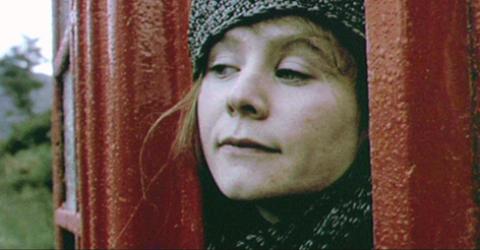This was meant to be for Little White Lies’ website but it doesn’t seem they’ve published it yet (annoyingly) so thought I’d post it here as well:

Brian Welsh started off working in Glasgow as an editor on social documentaries, and then trained as an editor at The National Film and Television School. He wrote and directed his first micro-budget feature film Kin-about a guy who is separated from his family and is looked after by a care worker-between projects. His second feature In Our Name explores the plight of a female soldier Suzy, who returns home to her family mentally scarred from what she has witnessed during her time in Iraq.
Did working on documentaries with social issues, did this inform the way you conceived of In Our Name?
I worked up in Glasgow as an editor with a company called Autonomi cutting a lot of films about things that were going on in the city, like we made a film [Good Cop] about a Race Relations copper and gang fighting problems. The film’s [also] about the Choker murder inquiry which was Glasgow’s Stephen Lawrence, if you like, with this young Sikh guy being killed. I’ve always been interested in films and stories about real people as opposed to mindless escapism, you know, cinema that really has something to say about the world around us and society. So that was my editing background and that overspilled into the stories I wanted to tell when it came to writing my own scripts.
How difficult was it to make that transition from editing documentaries to directing a feature film?
I was very fortunate, because I’d studied editing at The National Film School and the types of films or projects that I was excited about becoming involved in- the main reason for coming down there- weren’t really materialising. So I decided that given the fact that I had all of these resources and all of these very talented people I met, that it would be a great idea to try my hand at directing something that I wanted to talk about. So I made a really low-budget film there, and luckily that was seen by Artificial Eye, and then they asked me if I’d like to submit a script for this new scheme that they were running, and that was In Our Name.
Continue reading →
December 22, 2010
Categories: Interview . Tags: army films, artificial eye, brian welsh, british director, british film, glaswegian director, in our name, joanne froggatt, national film and television school, PTSD, social realism . Author: priscilla85 . Comments: Leave a comment


